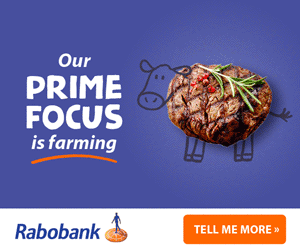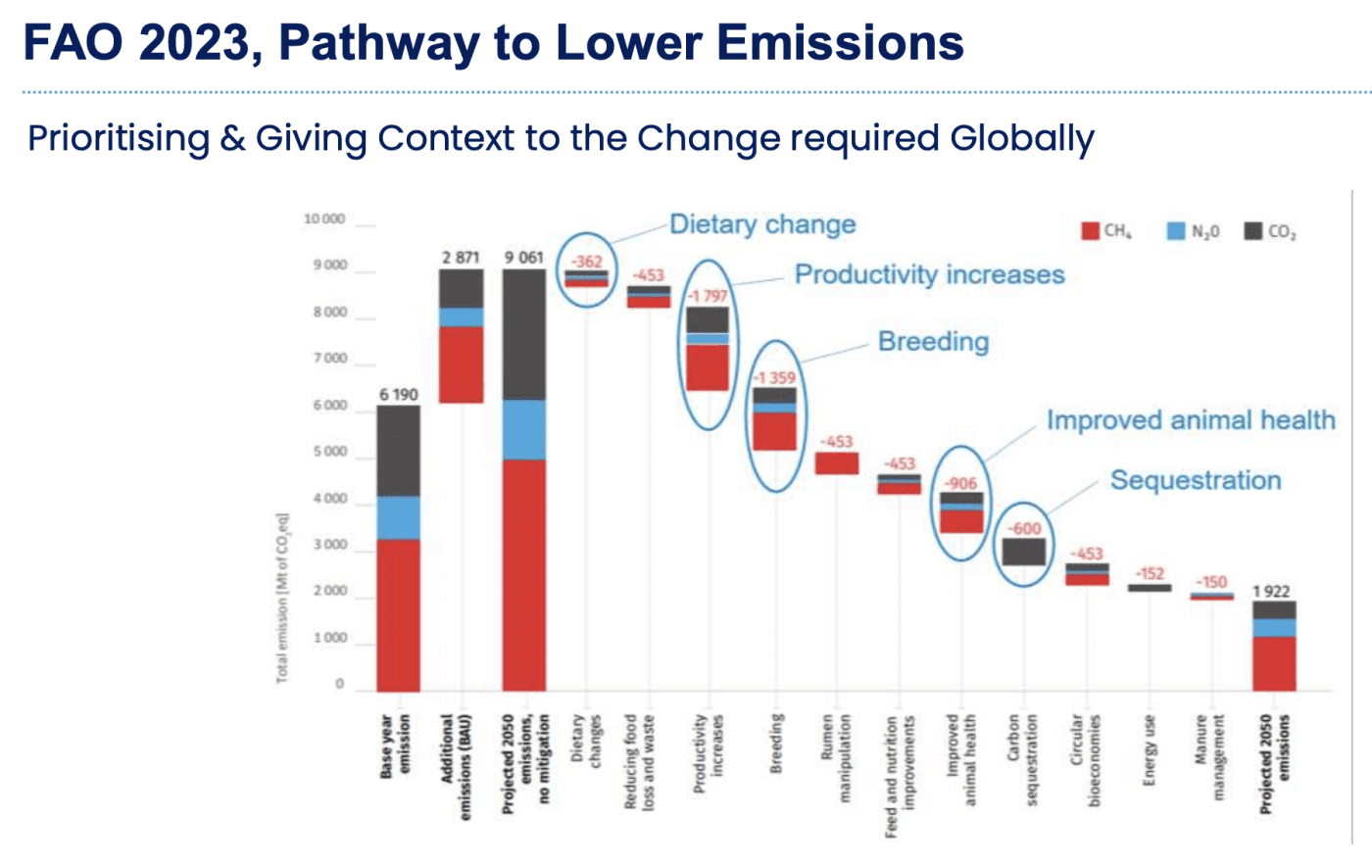WHILE many headlines push the message that pushing consumers to eat less red meat is an effective way to reduce global emissions, a recent United Nations Food and Agriculture Organisation Report suggests improving livestock productivity is a far more power lever to pull.
During a Beef 2024 address visiting Irish farmer John Gilliland and Professor of Practice at Queens University Belfast, who has recently retired from the EU’s Soil Mission Board and is a special advisor to the UK’s Agriculture Horticulture Development Board (AHDB), pointed to a range of interesting encouraging developments for the livestock sector in recent high-level reports.
Related article: Measure with “forensic integrity” leading Irish farmer urges Aussies
One recently published UN FAO report ranked (above) the behavioural changes most likely to be effective in achieving a net zero target by 2050.
Professor Gilliland noted that in Ireland “the number one agenda” is encouraging consumers to change their behaviour by eating less red meat.
However, the UN FAO report identified several approaches as likely to be more effective pathways to lower emissions.
This included driving productivity, followed by genetics, animal health, livestock health and carbon sequestration.
“At the moment where I come from, nobody’s talking about carbon sequestration.
“Yet, they’re showing that carbon sequestration is twice as important as changing dietary patterns of humans,” he said.
“So it’s really interesting to put some context into this journey, and actually, trying to get away from the emotion and put some intellect around this journey.
Professor Gilliland said he was also astonished to discover in another recent UN FAO report that the hidden cost of human health is three times higher than the hidden cost of environmental health.
“I had no understanding. I had no feeling for that whatsoever.
“And when you delve into that, really the key things coming out of their reports is this imperative to tackle unhealthy dietary patterns.”
Professor Gilliland said the Scottish Government recently commissioned Food Standards Scotland to look at the recommendations of the UK climate Change Committee, which suggest all UK citizens reduce their intake of animal source foods by 20pc to 30pc in the journey to net zero.
 “And so the Scottish Government wisely asked Food Standards Scotland, what would be the impact on Scottish people if we did that?
“And so the Scottish Government wisely asked Food Standards Scotland, what would be the impact on Scottish people if we did that?
“So they commissioned Edinburgh University to lead the research,” he said.
“And March of this year, they published a really interesting paper – Approaches to modelling impact of reduction of meat and dairy consumption in nutrient intakes and disease risk.
“And the conclusion: Given the diet of the Scottish population is so poor already, particularly in some subgroups an across-the-board population reduction of meat and dairy consumption cannot be recommended, as micronutrient intakes make be worsened among those who already have low intakes,” Professor Gilliland said.
“And for me, that was the first time that I actually saw a government agency step in and say that human health is equally, if not more important, than climate health, and really started for us to join the two at the hip.”
Professor Gilliland said net zero is when the sum of emissions equals the sum of sequestration, adjusted for any fossil fuel emissions displaced by renewables, and any methane emissions displaced by waste management.
What it was not about, he said, was “zero emissions”.
“And this is really the big challenge. 80 percent of my work is actually with society who don’t necessarily understand this.
“Zero emissions means no animals. It also means no humans too
“So one of the key things, we’re talking about net, not gross.”
He also added that carbon “is never permanent in soils or trees”.
“Any person who tells you that you could deliver permanency is wrong,” he said.
“But we certainly can lock it up for a period of time. And if we manage it right, we can keep it under there. It’s cyclic.”
He said the role of cattle manure and soil health was a story that “is not being told”.
“And it’s up to us to get the data and tell it because sure is anything all our competitors are not going to tell it for us.”.
Quoting Irish professor of Public Health, Pat Wall, UCD, he said the health of the nation relies on farmers: “Farmers are the wellness professionals. Doctors are the sickness professionals.”
“There is a huge role for us to provide that balanced diet.”




HAVE YOUR SAY